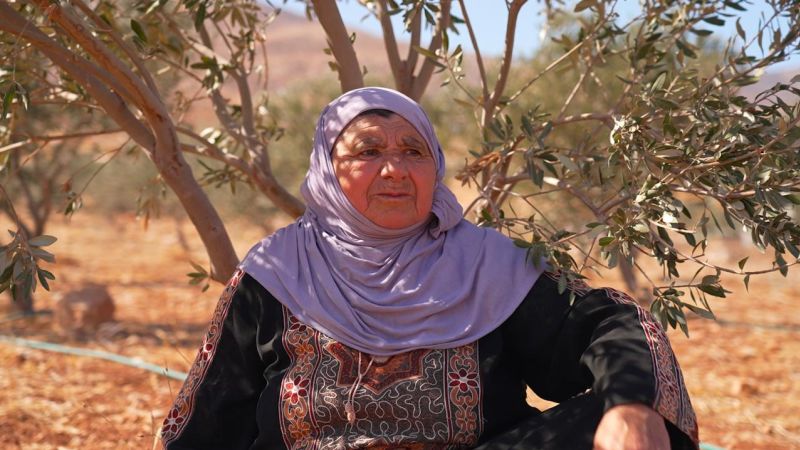Hamra, West Bank —
Umm Shukry inspects her olive trees one by one, just as she did every year for a decade. But this olive harvest season is different. Nearly all her trees are damaged; their branches bare and brittle.
Examining each limb, she feels exhausted with sorrow.
“I am suffocated. I am suffocated from seeing my hard work turn out like this,” she told CNN. “I used to spend so much time here under the scorching heat, taking care of them… we’ve had this land for over 50 years.”
For the past two years, the 72-year-old has been prevented from accessing her land, cut off by settler violence and Israeli army restrictions. It sits opposite an illegal outpost in the occupied West Bank’s Jordan Valley. The Israeli settlers living there have assaulted and threatened her family, she said, forcing them to leave their land out of fear.
During their absence, settlers sent cows to graze on their olive trees, Umm Shukry’s son Shukry Shehadeh, explains.
Neighbors sent him videos of settlers damaging the land. He returned to find his home ransacked, solar panels stolen, and water tanks and irrigation pipes destroyed.
And perhaps most painfully, there were no olives in sight.
“They forced us to leave, and then they used extreme violence to destroy our olives, our home, our belongings. I am struggling to comprehend this shock,” Shehadeh says.
Umm Shukry has tended to her olive trees for 10 years. This olive harvest, she was prevented from accessing her land because of settler attacks. Cyril Theophilos/CNN
Growing impunity
Settler attacks on Shehadeh’s farm are part of a systematic pattern of settler impunity amid a sharp increase in attacks against Palestinians, particularly in the
Continue Reading on CNN
This preview shows approximately 15% of the article. Read the full story on the publisher's website to support quality journalism.
